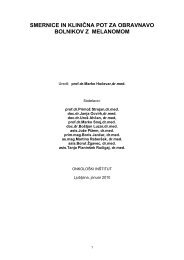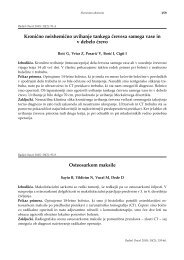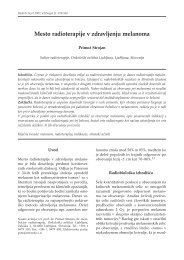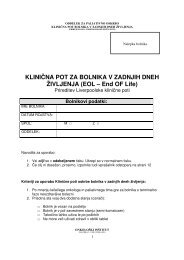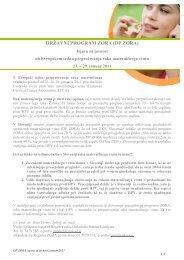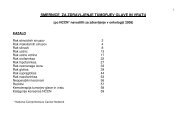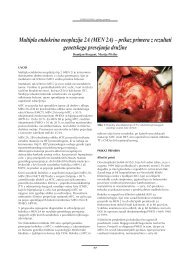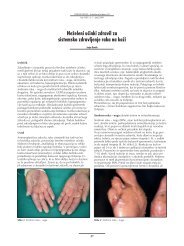Create successful ePaper yourself
Turn your PDF publications into a flip-book with our unique Google optimized e-Paper software.
The Cancer Degradome: new insights into protease<br />
function in cancer biology<br />
Dylan R. Edwards<br />
School of Biological Sciences, University of East Anglia, Norwich, NR4 7TJ, UK<br />
There is a long history that implicates secreted proteases such as the matrix<br />
metalloproteinases and the serine proteases of the plasminogen activation cascade<br />
as mediators of the genesis and spread of cancer. However, synthetic MP inhibitors<br />
proved disappointing in clinical trials and there is a growing awareness that proteases<br />
can in some instances antagonize rather than promote tumourigenesis. It is therefore<br />
necessary to unravel the contributions of components of the “degradome” – the<br />
repertoire of proteases, substrates and inhibitors employed in malignant tumours.<br />
Knowledge of the cancer degradome may lead to new diagnostic markers and<br />
therapeutic agents, and also to improved imaging of tumours. The talk will review<br />
recent progress from bioinformatic analysis of the degradome, and expression<br />
profiling and functional studies concerning the involvement of proteases in breast<br />
and prostate cancer. In particular, our data have identified MMP8 and ADAMTS15 as<br />
novel markers of good prognosis in breast cancer, whereas MMP11 and ADAMTS8<br />
are associated with poor outcome. The rationale for the design of novel, selective<br />
agents that target proteolysis will also be highlighted.<br />
20l7



